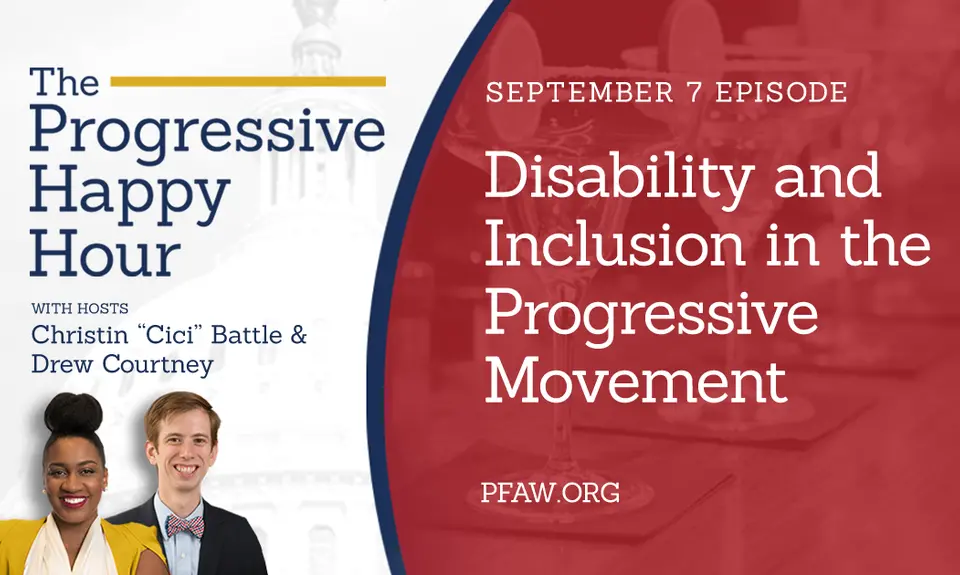Structural and social inequity has long been at the forefront of the progressive movement, and over time, activists have become increasingly thoughtful about ensuring diverse and meaningful representation of marginalized communities. But disability rights activists and people with disabilities have noticed that disability representation and inclusion is one issue that continues to be underrepresented in progressive spaces.
In the September 7 episode of “The Progressive Happy Hour,” co-host Drew Courtney and guest host Diallo Brooks talk to Rachna Sizemore Heizer, disability rights activist and board member of the Virginia Autism Project, about the fight for a more inclusive progressive movement that incorporates disability not just as a health care issue, but as an issue that affects people in every aspect of their lives.
Heizer explained, “When we talk about disability, most people think still of physical disability. We’ve come a long way in our society in accepting physical disability as part of the norm, but what we don’t talk about often is the fastest growing type of disability—intellectual and developmental disabilities, what often is referred to as hidden disabilities—PTSD, autism, Asperger’s [Syndrome], dyslexia, etc. The lack of understanding, awareness, accommodation and acceptance for hidden disabilities is a huge problem in our society that is, not to make a pun, still rather hidden.”
People with disabilities are discriminated against “just for existing,” Heizer noted. She shared a personal anecdote as one example: her son, who is autistic, enjoys music by pacing back and forth, and while doing so at a restaurant hosting a live musician recently, a man sitting at the restaurant bar complained to the manager about his pacing. She noted, “We need to expand what we consider normal behavior.”
Heizer urged progressive activists to reconsider their assumptions about disability and reframe the way they think about the issue. She said, “There is a lack of awareness and inclusion at the most basic level: ‘We see you as part of the valuable diversity of the human experience.’ It’s a blind spot in the progressive movement—we don’t see disability as a valued part of diversity.”
To learn more about how to incorporate disability into progressive activism, listeners can follow Heizer on Twitter at @RachnaHeizer, visit Virginia Autism Project’s website, or send her an email at rachnaheizer@ability.org.
Subscribe to The Progressive Happy Hour on iTunes, Stitcher, or wherever you get your podcasts. Follow us on Twitter at @TheProgressHH for the latest updates, and email us your thoughts and suggestions at podcast@pfaw.org.
Subscribe on iTunesSubscribe on Stitcher
